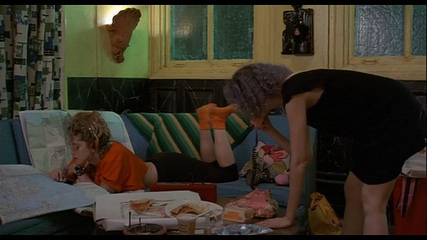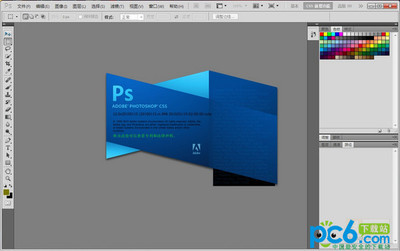
Desperately Seeking Susan
Terry Castle
A few weeks ago I found myself scanning photographs of SusanSontag into my screensaver file: a tiny head shot clipped fromNewsweek; two that had appeared in the New YorkTimes; another printed alongside Allan Gurganus’s obituary inthe Advocate, a glossy American gay and lesbian magusually devoted to pulchritudinous gym bunnies, gay sitcom starsand treatments for flesh-eating strep. It seemed the least I coulddo for the bedazzling, now-dead she-eminence. The most beautifulphoto I downloaded was one that Peter Hujar took of her in the1970s, around the time of I, Et Cetera. She’s wearing athin grey turtleneck and lies on her back – arms up, head restingon her clasped hands and her gaze fixed impassively on something tothe right of the frame. There’s a slightly pedantic quality to thewhole thing which I like: very true to life. Every few hours nowshe floats up onscreen in this digitised format, supine, sleek andflat-chested.
No doubt hundreds (thousands?) of people knew Susan Sontagbetter than I did. For ten years ours was an on-again, off-again,semi-friendship, constricted by role-playing and shot through inthe end with mutual irritation. Over the years I laboured to hidemy growing disillusion, especially during my last ill-fated visitto New York, when she regaled me – for the umpteenth time – aboutthe siege of Sarajevo, the falling bombs, and how the pitiful JoanBaez had been too terrified to come out of her hotel room. Sontagflapped her arms and shook her big mannish hair – inevitablydescribed in the press as a ‘mane’ – contemptuously. That womanis a fake! She tried to fly back to California the next day! I wasthere for months. Through all of the bombardment, of course,Terry. Then she ruminated. Had I ever met Baez? Was she asecret lesbian? I confessed that I’d once waited in line behind thefolk singer at my cash machine (Baez lives near Stanford) and hadtaken the opportunity to inspect the hairs on the back of her neck.Sontag, who sensed a rival, considered this non-event for a moment,but after further inquiries, was reassured that I, herforty-something slave girl from San Francisco, still preferredher to Ms Diamonds and Rust.
At its best, our relationship was rather like the one betweenDame Edna and her feeble sidekick Madge – or possibly Stalin andMalenkov. Sontag was the Supremo and I the obsequious gofer.Whenever she came to San Francisco, usually once or twice a year, Iinstantly became her female aide-de-camp: a one-woman posse, readyto drop anything at a phone call (including the classes I wassupposed to be teaching at Stanford) and drive her around tovarious Tower record stores and dim sum restaurants. Mostimportant, I became adept at clucking sympathetically at herconstant kvetching: about the stupidity and philistinism ofwhatever local sap was paying for her lecture trip, how no one hadyet appreciated the true worth of her novel The VolcanoLover, how you couldn’t find a decent dry cleaner in downtownSan Francisco etc, etc.
True – from my point of view – it had all begun extraordinarilywell. Even now I have to confess that, early on, Sontag gave me acouple of the sweetest (not to mention most amusing) moments of myadult life. The first came one grey magical morning at Stanford in1996, when after several hours of slogging away on student papers,I opened a strange manila envelope that had come for me, with a NewYork return address. The contents – a brief fan letter about apiece I’d written on Charlotte Brontë and a flamboyantly inscribedpaperback copy of her play, Alice in Bed (‘from Susan’) –made me dizzy with ecstasy. Having idolised Sontag literally fordecades – I’d first read ‘Notes on Camp’ as an exceedingly archnine-year-old – I felt as if Pallas Athene herself had suddenlymaterialised and offered me a cup of ambrosia. (O great Susan!Most august Goddess of Female Intellect!) I zoomed around,showing the note to various pals. To this day, when I replay it inmy mind, I still get a weird toxic jolt of adolescent joy – liketaking a big hit of Crazy Glue vapours out of a paper bag.
Things proceeded swiftly in our honeymoon phase. Sontag, itturned out, was coming to Stanford for a writer-in-residence stintthat spring and the first morning after her arrival abruptlysummoned me to take her out to breakfast. The alacrity with which Idrove the forty miles down from San Francisco – trying not to getflustered but panting a bit at the wheel nonetheless – set thepattern of our days. We made the first of several madcap car tripsaround Palo Alto and the Stanford foothills. While I drove, oftensomewhat erratically, she would alternate between loud complaints –about her faculty club accommodation, the bad food at theHumanities Center, the ‘dreariness’ of my Stanford colleagues(‘Terry, don’t you loathe academics as much as I do? Howcan you abide it?’) – and her Considered Views onEverything (‘Yes, Terry, I do know all the lesser-knownHandel operas. I told Andrew Porter he was right – theyare the greatest of musical masterpieces’). I was rapt,like a hysterical spinster on her first visit to Bayreuth.Schwärmerei time for T-Ball.
The Sarajevo obsession revealed itself early on: in fact,inspired the great comic episode in this brief golden period. Wewere walking down University Avenue, Palo Alto’s twee,boutique-crammed main drag, on our way to a bookshop. Sontag waswearing her trademark intellectual-diva outfit: voluminous blacktop and black silky slacks, accessorised with a number of exotic,billowy scarves. These she constantly adjusted or flung backimperiously over one shoulder, stopping now and then to puff on acigarette or expel a series of phlegmy coughs. (The famous Sontag‘look’ always put me in mind of the stage direction in BlitheSpirit: ‘Enter Madame Arcati, wearing barbaric jewellery.’)Somewhat incongruously, she had completed her ensemble with a pairof pristine, startlingly white tennis shoes. These made her feetseem comically huge, like Bugs Bunny’s. I half-expected her tobounce several feet up and down in the air whenever she took astep, like one of those people who have shoes made of ‘Flubber’ inthe old Fred McMurray movie.
She’d been telling me about the siege and how a Yugoslav womanshe had taken shelter with had asked her for her autograph, even asbombs fell around them. She relished the woman’s obviousintelligence (‘Of course, Terry, she’d read The VolcanoLover, and like all Europeans, admired it tremendously’) andher own sangfroid. Then she stopped abruptly and asked, grim-faced,if I’d ever had to evade sniper fire. I said, no, unfortunatelynot. Lickety-split she was off – dashing in a feverish crouch fromone boutique doorway to the next, white tennis shoes a blur, allthe way down the street to Restoration Hardware and theBaskin-Robbins store. Five or six perplexed Palo Altans stopped towatch as she bobbed zanily in and out, ducking her head, pointingat imaginary gunmen on rooftops and gesticulating wildly at me tofollow. No one, clearly, knew who she was, though several of themlooked as if they thought they should know who she was.
In those early days, I felt like an intellectual autodidactfacing the greatest challenge of her career: the Autodidact of allAutodidacts. The quizzing was relentless. Had I read Robert Walser?(Ooooh errrg blush, ahem, little cough, um: No, I’m ashamed tosay ...) Had I read ThomasBernhard? (Yes! – Yes, I have! ‘Wittgenstein’s Nephew’! Yay!Yippee! Wow! Phew! – dodged the bullet that time!) It seemed,for a while at least, that I had yet to be contaminated by theshocking intellectual mediocrity surrounding me at Stanford U. Thisexemption from idiocy was due mainly, I think, to the fact that Icould hold my own with her in the music-appreciation department.Trading CDs and recommendations – in a peculiar, masculine,trainspotting fashion – later became a part of our fragile bond. Iscored a coup one time with some obscure Busoni arrangements she’dnot heard of (though she assured me that ‘she had, of course, knownthe pianist’ – the late Paul Jacobs – ‘very well’); but I almostcame a cropper when I confessed I had never listened to Janáček’sThe Excursions of Mr Broucek. She gave me a surprisedlook, then explained, somewhat loftily, that I owed it to myself,as a ‘cultivated person’, to become acquainted with it. (‘I adoreJanáček’s sound world.’) A recording of the opera appeared soonafter in the mail – so I knew I’d been forgiven – but afterlistening to it once I couldn’t really get anywhere with it. (Ittends to go on a bit – in the same somewhat exhausting EasternEuropean way I now associate with Sontag herself.) The discs arestill on my shelf. Given their exalted provenance I can’t bear tounload them at the used CD shop in my neighbourhood.
And she also flirted – in a coquettish, discombobulating, yetunmistakable fashion. She told me she had read my book, TheApparitional Lesbian, and ‘agreed with me entirely’ aboutHenry James and The Bostonians. She made me describe atlength how I’d met my then girlfriend. (‘She wrote you a letter!And you answered? Terry, I’m amazed! I get those letters all thetime, but I would never answer one! Of course, Terry, I’mstunned!’) Though I was far too cowed to ask her directly about herown love life, she would reveal the occasional titbit from herlegendary past, then give me a playful, almost girlish look. (‘Ofcourse, Terry, everyone said Jeanne Moreau and I werelovers, but you know, we were just good friends.’) My apotheosis astease-target came the night of her big speech in Kresge Auditorium.She had begun by reprimanding those in the audience who failed toconsider her one of the ‘essential’ modern novelists, then read aseemingly interminable section of what was to become InAmerica. (Has any other major literary figure written such anexcruciatingly turgid book?) At the end, as the audience gave wayto enormous, relieved clapping – thank God that’s over – she made abeeline towards me. Sideswiping the smiling president of Stanfordand an eager throng of autograph-seekers, she elbowed her waytowards me, enveloped me rakishly in her arms and said very loudly:‘Terry, we’ve got to stop meeting like this.’ She seemed to thinkthe line hilarious and chortled heartily. I felt at once exalted,dopey and mortified, like a plump teenage boy getting a hard-on infront of everybody.
Though otherwise respectful, Allan Gurganus (in theAdvocate obit) takes Sontag to task for never having comeout publicly as a lesbian: ‘My only wish about Sontag is that shehad bothered to weather what the rest of us daily endure. Thedisparity between her professed fearlessness and her actualself-protective closetedness strikes a questioning footnote that isthe one blot on her otherwise brilliant career.’
I have to say I could never figure her out on this touchysubject – though we did talk about it. Her usual line (indignantand aggrieved) was that she didn’t believe in ‘labels’ and that ifanything she was bisexual. She raged about a married couple whowere following her from city to city and would subsequently publisha tell-all biography of her in 2000. Horrifyingly enough, she’dlearned, the despicable pair were planning to include photographsof her with various celebrated female companions. Obviously, bothneeded to be consigned to Dante’s Inferno, to roast in the flamesin perpetuity with the Unbaptised Babies, Usurers and Makers ofFalse Oaths. I struggled to keep a poker face during these rants,but couldn’t help thinking that Dante should have devised a wholecircle specifically for such malefactors: the Outers of Sontag.
At other times she was less vehement, and would assume a dreamy,George Sand-in-the-1840s look. ‘I’ve loved men, Terry; I’ve lovedwomen ...’ she would begin,with a deep sigh. What did the sex of the person matter, after all?Think of Sand herself with Chopin and Marie Dorval. Or Tsvetaeva,perhaps, with Mandelstam and Sophia Parnok. In Paris, all theelegant married ladies had mistresses. And yet in some way I feltthe subject of female homosexuality – and whether she owed theworld a statement on it – was an unresolved one for her. Later inour friendship, the topic seemed to become an awkward obsession,especially as I came closer to finishing up an anthology oflesbian-themed literature I’d been working on for several years.She frequently suggested things she thought I should include: mostinterestingly, perhaps, her favourite steamy love scene fromPatricia Highsmith’s 1952 lesbian romance novel The Price ofSalt. As far as Sontag was concerned, Highsmith’s dykey littlepotboiler – published originally under a pseudonym – was right upthere with Buddenbrooks and The Man withoutQualities. Something in the story – about a gifted (yetinsecure) young woman who moves to Manhattan in the early 1950s tobecome a theatre designer and ends up falling rapturously in lovewith a glamorous, outré older woman – must have once struck achord: Sontag seemed to dote on it.
And invariably she would probe for sapphic gossip – sometimesabout opera singers and pop stars, sometimes about other writers.Was it true what everyone said about Joan Sutherland and MarilynHorne during the rehearsals for Norma? What about JuneAnderson? And Jessye Norman? Or Lucia Popp, for that matter? (‘Ofcourse, Terry, the perfect Queen of the Night.’) Did I think IrisMurdoch and Brigid Brophy had had an affair? What was AdrienneRich’s girlfriend like? When was somebody ever going to spill thebeans on Eudora Welty and Elizabeth Bowen?
Was there some way, I wonder now, that she wanted me to absolveher? Was the fact that she never mentioned, on any of the occasionswe talked, her equally prominent female companion – they lived inthe same Manhattan building – a sign of grande damesophistication or some sort of weird test of my character?(Actually I did hear her say her name once; when someone at anotherwise fairly staid farewell dinner gave Sontag a vulgar presentat the end of her Stanford visit – a book of glossy photos of thecampy 1950s pin-up, Bettie Page – she said: ‘I’ll have to showthese to Annie.’)
I was never quite sure what she wanted. And besides,whatever it was, after a while she stopped wanting it. I visitedher several times in New York City and even got invited to theLondon Terrace penthouse to see the famous book collection. (‘Ofcourse, Terry, mine is the greatest library in private hands in theworld.’) I tried not to gape at the Brice Mardens stacked upagainst the wall and enthused appropriately when she showed meprized items, such as Beckford’s own annotated copy ofVathek. We would go on little culture jaunts. Once shetook me to the Strand bookstore (the clerk said, ‘Hi, Susan’ inenviably blasé tones); another time she invited me to a filmfestival she was curating at the Japan Society. But there were alsolittle danger signals, ominous hints that she was tiring of me. Oneday in the Village, after having insisted on buying me adouble-decker ice-cream cone, she suddenly vanished, even as I,tongue moronically extruded, was still licking away. I turnedaround in bewilderment and saw her black-clad form piling, withoutfarewell, into a yellow cab.
And the last two times I saw her I managed to blow it –horrendously – both times. The first debacle occurred after one ofthe films at the Japan Society. I’d been hanging nervously aroundin the lobby, like a groupie, waiting for her: Sontag yanked meinto a taxi with her and an art curator she knew named Klaus. (Hewas hip and bald and dressed in the sort of all-black outfit wornby the fictional German talk-show host, Dieter Sprocket, on the oldSaturday Night Live.) With great excitement she explainedshe was taking me out for ‘a real New York evening’ – to a dinnerparty being hosted by Marina Abramovic, the performance artist, ather loft in Soho. Abramovic had recently been in the news forhaving lived for 12 days, stark naked, on an exposed woodenplatform – fitted with shower and toilet – in the window of theSean Kelly Gallery. She lived on whatever food spectators donatedand never spoke during the entire 12 days. I guess it had all beenpretty mesmerising: my friend Nancy happened to be there once whenAbramovic took a shower; and one of Nancy’s friends hit the jackpot– she got to watch the artist have a bowel movement.
Abramovic – plus hunky sculptor boyfriend – lived in a huge,virtually empty loft, the sole furnishings being a dining table andchairs in the very centre of the room and a spindly old stereo fromthe 1960s. The space was probably a hundred feet on either side –‘major real estate, of course’, as Sontag proudly explained to me.(She loved using Vanity Fair-ish clichés.) She andAbramovic smothered one another in hugs and kisses. I meanwhileblanched in fright: I’d just caught sight of two of the otherguests, who, alarmingly enough, turned out to be Lou Reed andLaurie Anderson. Reed (O great rock god of my twenties) stoodmorosely by himself, humming, doing little dance steps and playingair guitar. Periodically he glared at everyone – including me –with apparent hatred. Anderson – elfin spikes of hair perfectlygelled – was chatting up an Italian man from the Guggenheim, theman’s trophy wife and the freakish-looking lead singer from thecult art-pop duo Fischerspooner. The last-mentioned had just comeback from performing at the Pompidou Centre and wore booties andtights, a psychedelic shawl and a thing like a codpiece. He couldhave played Osric in a postmodern Hamlet. He wasaccompanied by a bruiser with a goatee – roadie or boyfriend, itwasn’t clear – and emitted girlish little squeals when our firstcourse, a foul-smelling durian fruit just shipped in from Malaysia,made its way to the table.
Everyone crowded into their seats: despite the vast size of theroom, we were an intime gathering. Yet it wouldn’t bequite right merely to say that everyone ignored me. As a non-artistand non-celebrity, I was so ‘not there’, it seemed – so cognitivelyunassimilable – I wasn’t even registered enough to be ignored. Isat at one end of the table like a piece of anti-matter. I didn’texchange a word the whole night with Lou Reed, who sat kitty-corneracross from me. He remained silent and surly. Everyone else gabbledhappily on, however, about how they loved to trash hotels when theywere younger and how incompetent everybody was at the Pompidou. ‘Atmy show I had to explain things to them athousand times. They just don’t know how to do amajor retrospective.’
True, Sontag tried briefly to call the group’s attention to me(with the soul-destroying words, ‘Terry is an English professor’);and Abramovic kindly gave me a little place card to write my nameon. But otherwise I might as well not have been born. My oneconversational gambit failed dismally: when I asked the man fromthe Guggenheim, to my right, what his books were about, he regardedme disdainfully and began, ‘I am famous for – ,’ then caughthimself. He decided to be more circumspect – he was the ‘world’sleading expert on Arte Povera’ – but then turned his back on me forthe next two hours. At one point I thought I saw Laurie Anderson,at the other end of the table, trying to get my attention: she wassmiling sweetly in my direction, as if to undo my patheticisolation. I smiled in gratitude in return and held up my littleplace card so she would at least know my name. Annoyed, shegestured back impatiently, with a sharp downward flick of her indexfinger: she wanted me to pass the wine bottle. I was reduced to apair of disembodied hands – like the ones that come out of thewalls and give people drinks in Cocteau’s Beauty and theBeast.
Sontag gave up trying to include me and after a while seemedherself to recede curiously into the background. Maybe she wasalready starting to get sick again; she seemed oddly undone.Through much of the conversation (dominated by glammy Osric) shelooked tired and bored, almost sleepy. She did not react when Ifinally decided to leave – on my own – just after coffee had beenserved. I thanked Marina Abramovic, who led me to the grungy metalstaircase that went down to the street and back to the world of theLittle People. Turning round one last time, I saw Sontag stillslumped in her seat, as if she’d fallen into a trance, or somehowjust caved in. She’d clearly forgotten all about me.
A fiasco, to be sure, but my final encounter with Sontag waspossibly more disastrous: my Waterloo. I had come to New York withBlakey, and Sontag (to whom I wanted proudly to display her) saidwe could stop by her apartment one afternoon. When we arrived atthe appointed time, clutching a large bouquet of orange roses,Sontag was nowhere to be seen. Her young male assistant, paddingdelicately around in his socks, showed us in, took the roses away,and whispered to us to wait in the living-room. We stood in puzzledsilence. Half an hour later, somewhat blowsily, Sontag finallyemerged from a back room. I introduced her to Blakey, and saidrather nervously that I hoped we hadn’t woken her up from a nap. Itwas as if I had accused her of never having read Proust, or ofwatching soap operas all day. Her face instantly darkened and shesnapped at me violently. Why on earth did I think she’d been havinga nap? Didn’t I know she never had naps? Of course she wasn’thaving a nap! She would never have a nap! Never in a million years!What a stupid remark to make! How had I gotten so stupid? Anap – for God’s sake!
She calmed down after a bit and became vaguely nice to Blakey –Blakey had just read her latest piece on photography in the NewYorker and was complimenting her effusively on it – but it wasclear I couldn’t repair the damage I’d done. Indeed I made itworse. Sontag asked B. if she had read The Volcano Loverand started in on a monologue (one I’d heard before) about herliterary reputation. It had ‘fallen’ slightly over the past decade,she allowed – foolishly, people had yet to grasp the greatness ofher fiction – but of course it would rise again dramatically, ‘assoon as I am dead’. The same thing had happened, after all, toVirginia Woolf, and didn’t we agree Woolf was a great genius? In aweak-minded attempt at levity, I said: ‘Do you really thinkOrlando is a work of genius?’ She then exploded. ‘Ofcourse not!’ she shouted, hands flailing and face white with rage.‘Of course not! You don’t judge a writer by her worst work! Youjudge her by her best work!’ I reeled backwards as if I’d beenstruck; Blakey looked embarrassed. The assistant peeked out fromanother room to see what was going on. Sontag went on muttering fora while, then grimly said she ‘had to go’. With awkward thanks, webundled ourselves hurriedly into the elevator and out onto West24th Street – Blakey agog, me all nervy and smarting. When I sentSontag a copy of my lesbian anthology a few months later, athousand pages long and complete with juicy Highsmith excerpt, Iknew she would never
 爱华网
爱华网


